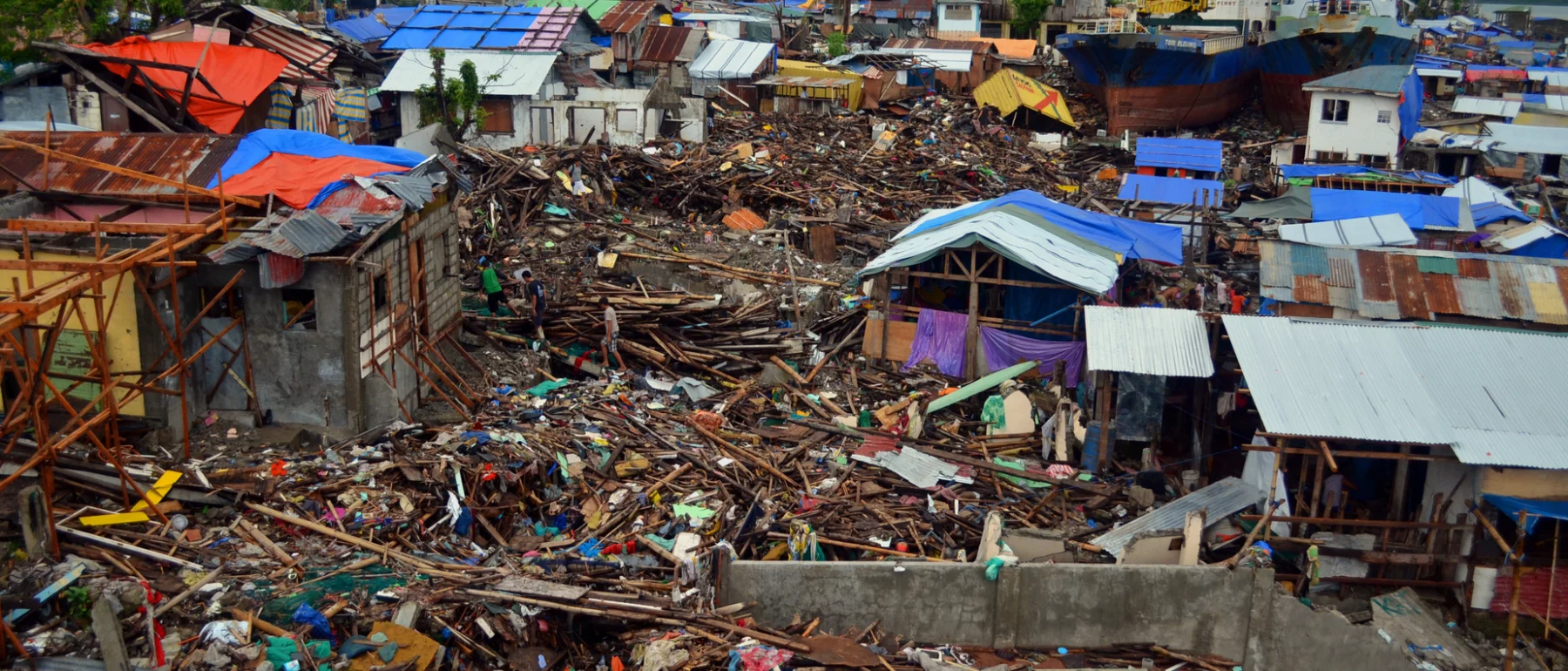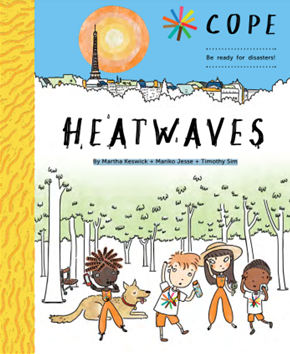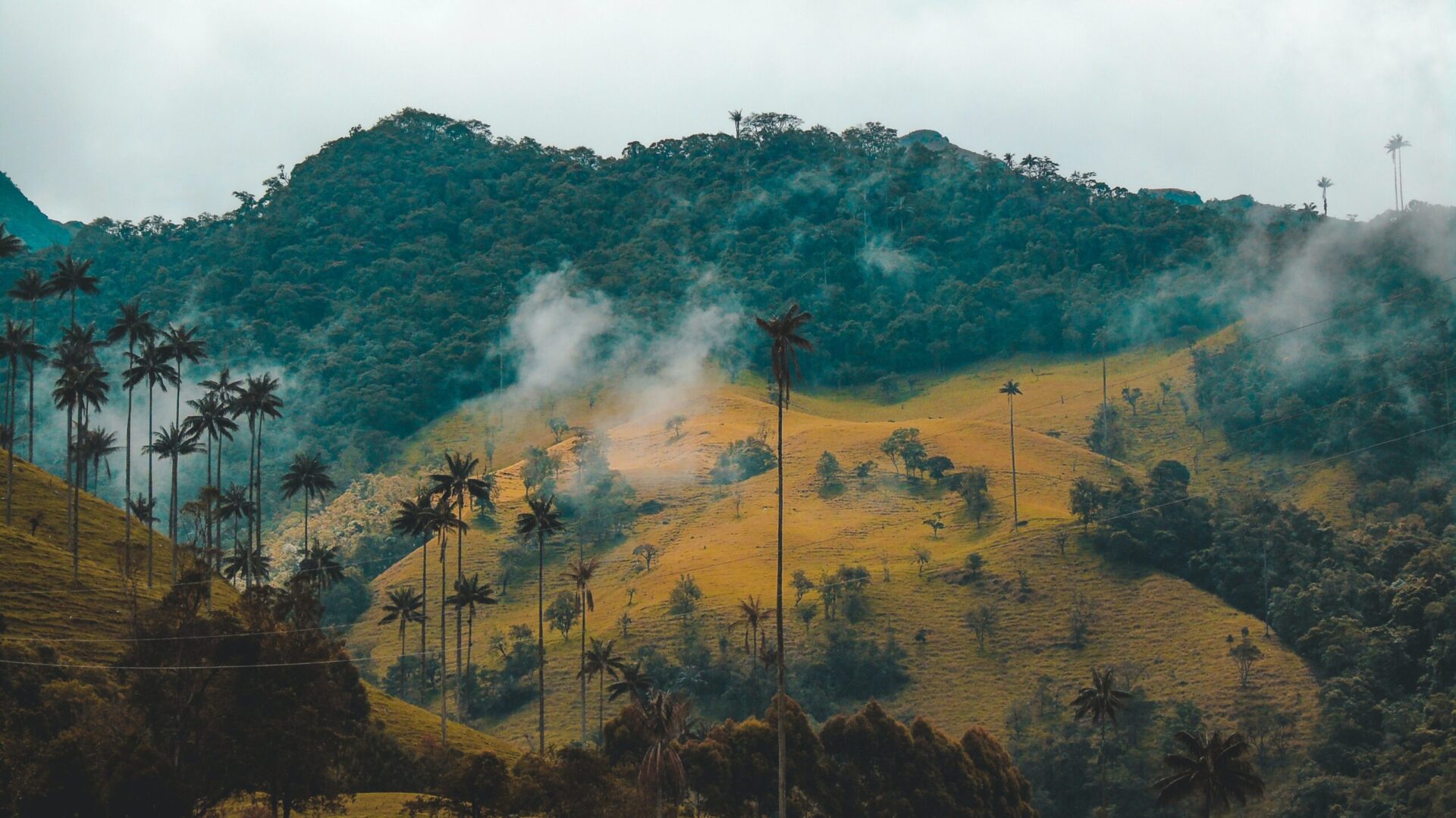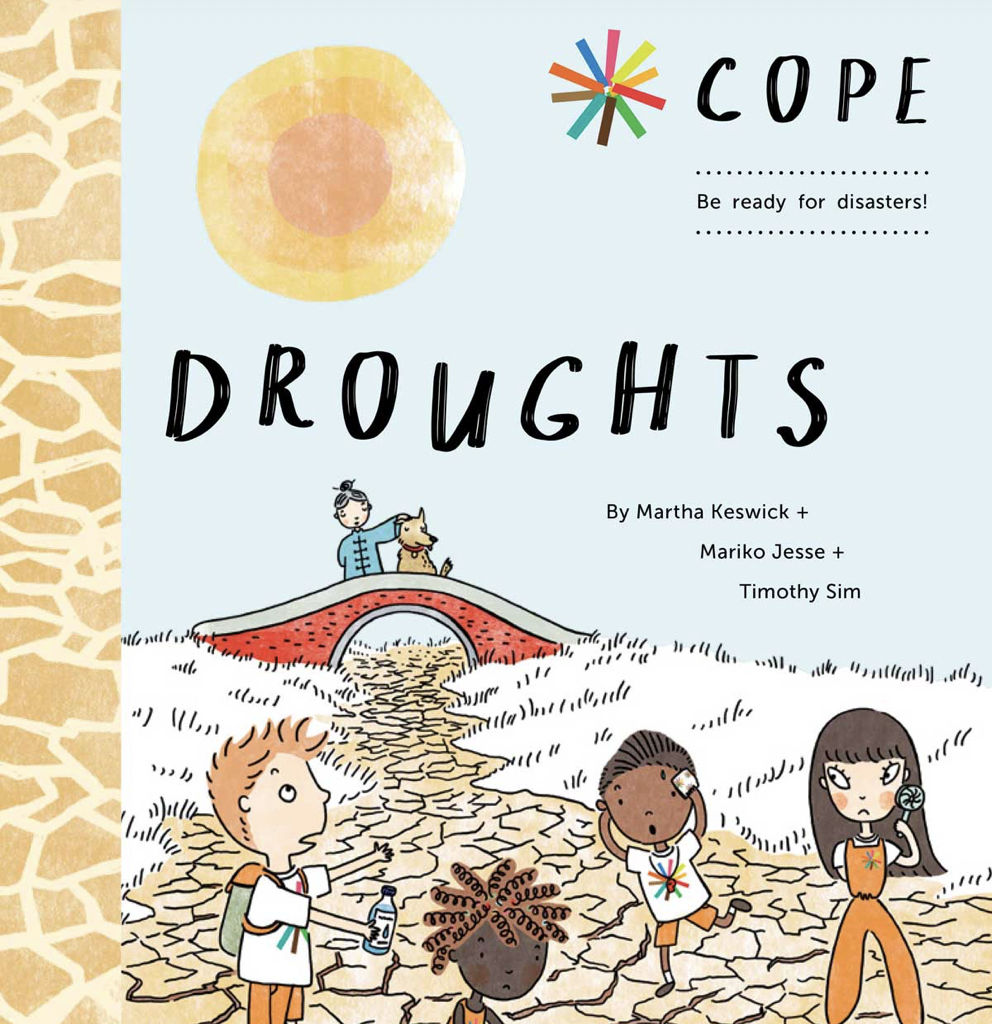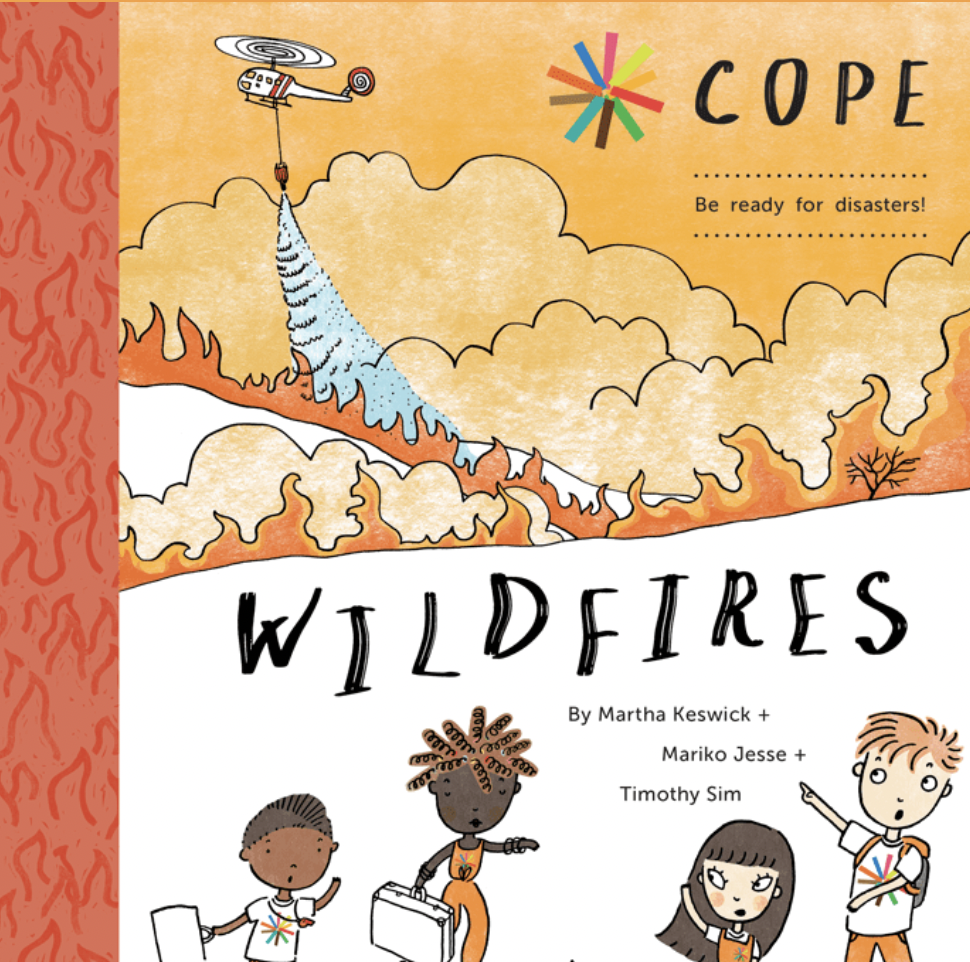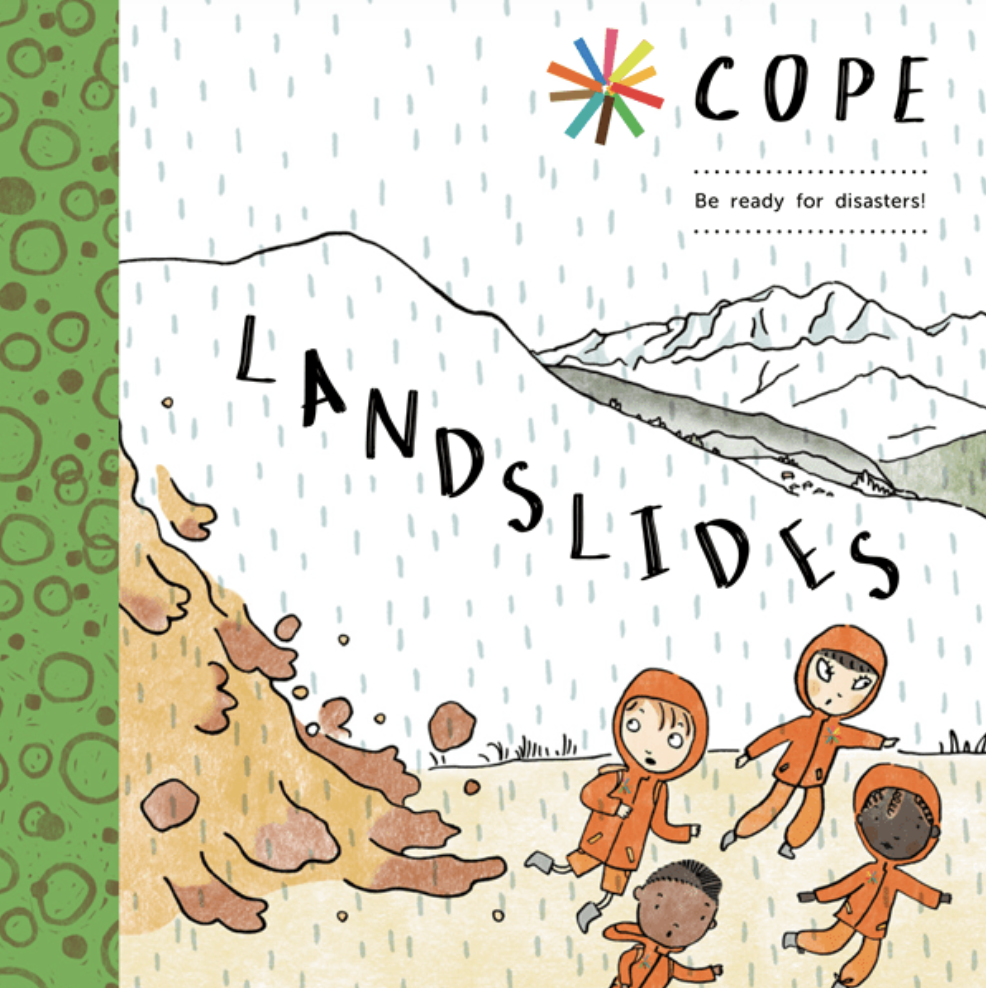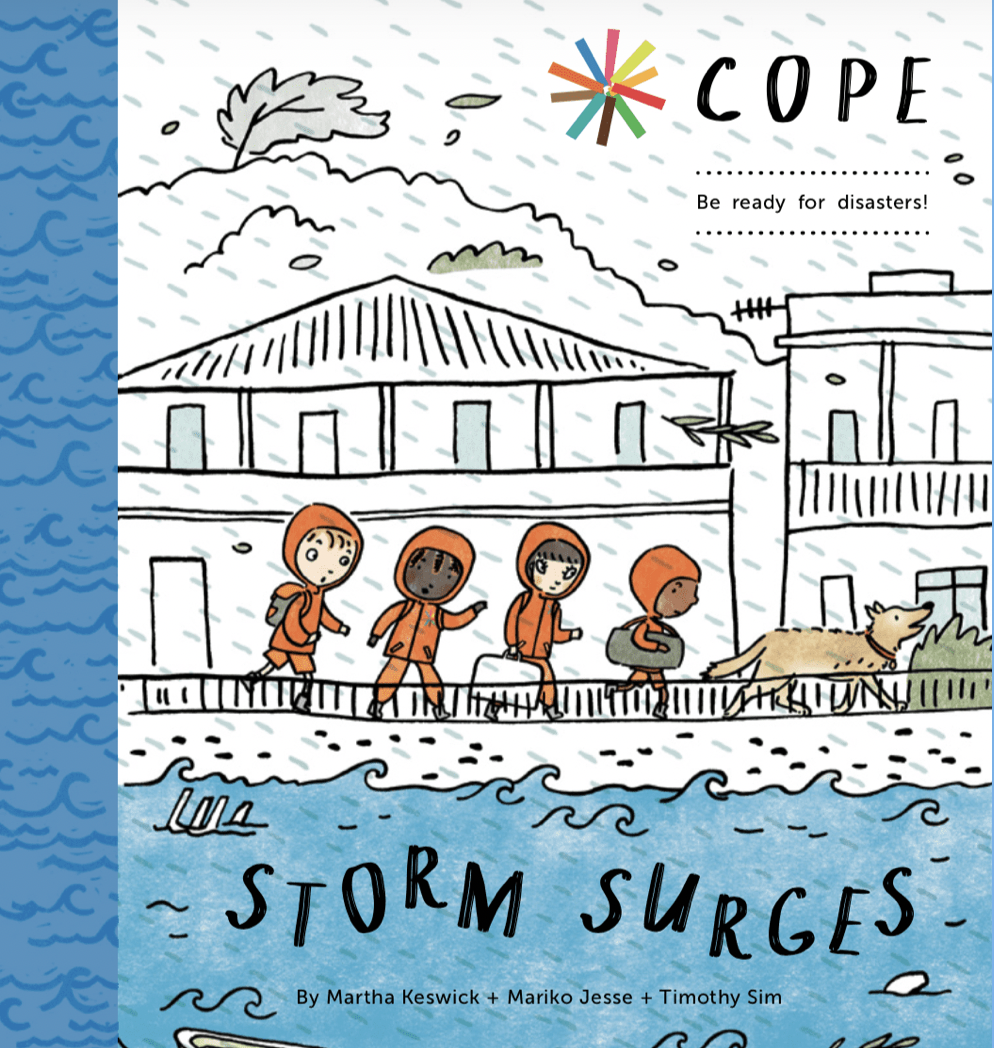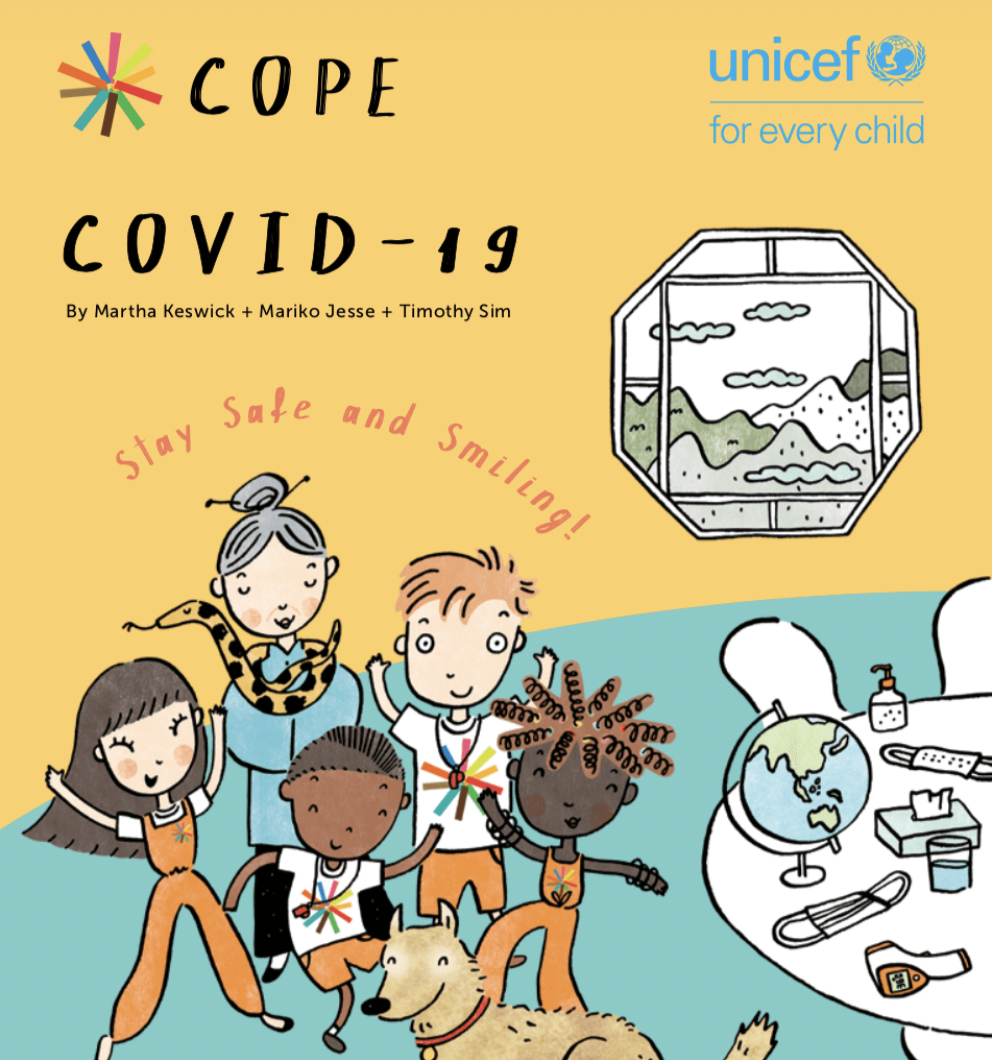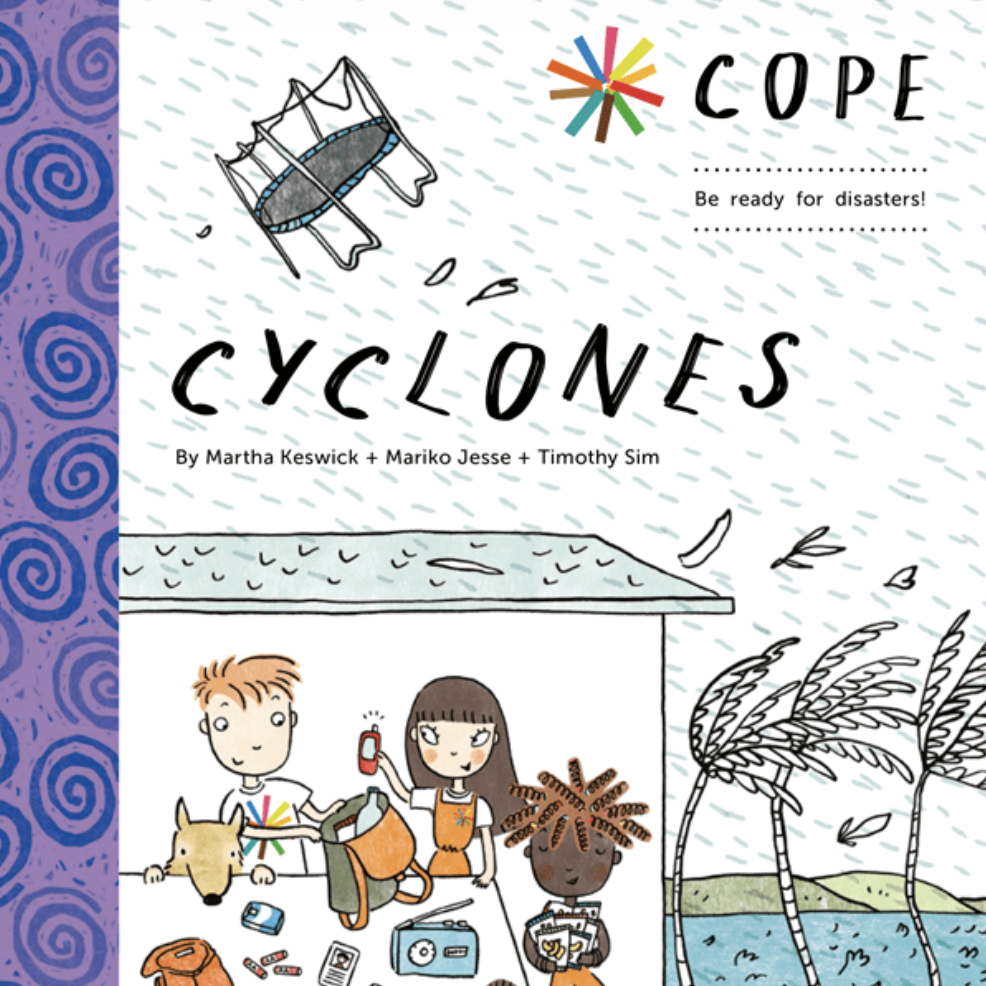Theme
Disasters and Climate Change
Generating knowledge to integrate disaster risk reduction (DRR) with equitable, sustainable and resilient development, recognizing that development and DRR are interlinked.

Podcast: Critiquing knowledge co-production in disaster risk reduction
In this podcast episode, Minh Tran and Dayoon Kim of SEI Asia reflect on their work in climate and disaster research to critique knowledge co-production and find ways for research, policy and action to be more equitable.
COPE Books for Children: Heatwaves
Learn about disaster risk reduction and heatwaves in this illustrated children's book. The COPE squad travel to the WMO HQ in Geneva, Switzerland on the way on their epic Heatwaves mission where they put their disaster risk reduction skills into action!
Artefacts of Disaster Risk Reduction: bridging the gap between policymaking and capacities on the ground
Explore how to bridge the gap between inefficient top-down policymaking and the often-neglected capacities on the ground in this Artefacts of Disaster Risk Reductionarticle; a result from a four-year project titled ADAPTO (Climate Change Adaptation in Informal Settings – Understanding and Reinforcing Bottom-up Initiatives in Latin America and the Caribbean).
Wildland Fire Management Working Group Action Plan 2021–2026
A roadmap for implementing the Canadian wildland fiire Strategy using a whole-of-government approach
COPE Books for Children: Droughts
Learn about how climate change will impact droughts and how to be more prepared for them with this illustrated book for children from COPE and United Nations Disaster Risk Reduction.
COPE Books for Children: Wildfires
Learn about disaster risk reduction and wildfires with this illustrated children's book from COPE. This time the COPE Squad travel to Pretoria, South Africa, to meet experts and learn all about wildfires. They put their training to good use when called to San Francisco to help with a real Wildfire.
COPE Books for Children: Landslides
In this beautifully illustrated book for children you will learn how to look out for the signs that a landslide may occur, how to be ready and prepared, and what to do during a landslide and evacuation.
COPE Books for Children: Storm Surges
Learn about risk reduction for storm surges in this illustrated book for children from COPE. This time the COPE squad travels to Hong Kong and the traditional fishing village of Tai O.
COPE Books for Children: COVID-19
Learn about disaster risk reduction, COVID and how the virus is spread in this illustrated book for children from COPE
COPE Books for Children: Cyclones
Learn about disaster risk reduction and cyclones with this illustrated book for children from COPE. This time, the squad travels to Australia.
